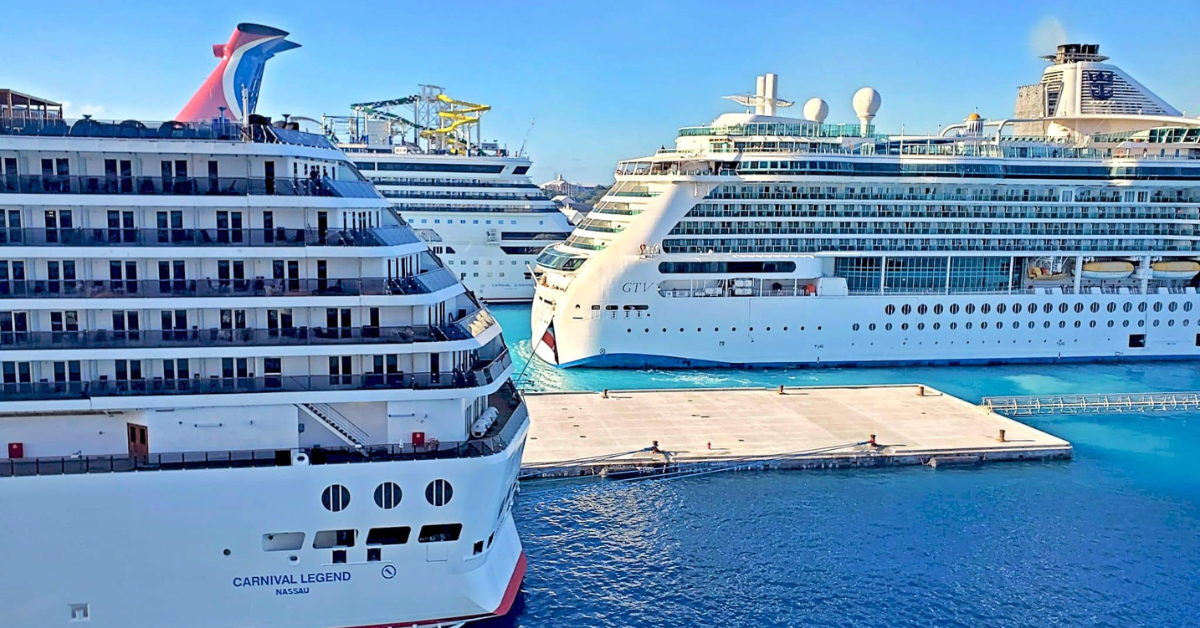Cruising is a great way to enjoy a holiday, but like any travel experience, it comes with its risks. Health issues can arise while at sea, whether it’s something minor like seasickness or something more serious like a heart attack. In this article, we explore the types of illnesses you could face on a cruise, what medical help is available on board, and how the cruise crew handles emergencies.
Common Health Issues on Cruises
Cruise ships are not immune to illness, and due to the close quarters, viruses can spread quickly. Norovirus, in particular, is a common problem. In 2024, it was reported that cruise ships experienced their worst year for stomach bug outbreaks in over a decade. Norovirus thrives in crowded spaces, and the virus can spread rapidly through physical contact, especially on large ships with many passengers.
However, norovirus isn’t the only health issue that can arise on a cruise. Other conditions, such as heart attacks, strokes, fractures, kidney failure, hangovers, and seasickness, can occur at sea, just like on land. If someone falls ill, it’s important to understand how cruise ships handle medical emergencies.
Medical Facilities on Board
Most cruise ships are equipped with a medical center to handle common health problems. Larger ships tend to have fully stocked medical facilities, including defibrillators, x-ray machines, ventilators, cardiac monitors, and more. Smaller ships may have limited medical equipment, but they still provide basic care for minor illnesses and injuries.
The size of the ship often determines the level of medical support available. Larger ships have a full medical staff, including doctors and nurses. Smaller vessels may have a nurse or a medically trained staff member on hand for emergencies. River cruises are different because they are always near land, so passengers who need medical treatment can be quickly transferred to nearby hospitals.
What Treatments Are Available on a Cruise Ship?

The on-board medical staff can handle a range of issues, including seasickness, minor burns, insect bites, sprains, colds, and injuries like broken arms. They can prescribe medications, provide emergency care, and offer advice for dealing with mild ailments. The medical center on most ships is open during the day for non-emergency issues, but there are medical staff available 24/7 for emergencies.
If a patient requires more extensive treatment than the ship can provide, the crew will work to get the passenger to the nearest port where they can be transferred to a hospital. In extreme cases, airlifting a passenger by helicopter may be necessary.
What Happens If You Need to Be Airlifted or Transferred?
If the ship cannot reach a port or the medical team is unable to treat the illness or injury, the next option is often an airlift. Helicopters can be used to evacuate passengers in critical conditions. This happened this past summer on a voyage through the remote Beaufort Sea when a passenger needed to be airlifted after a severe health issue arose. Medical staff aboard will make arrangements for a safe transfer if needed.
Costs of Medical Treatment on a Cruise
It’s important to know that medical treatment on a cruise is not free. The cost of treatment will be added to your cabin account, and you can claim it through your travel insurance if applicable. Before purchasing travel insurance, check the fine print to make sure it covers cruise-related medical issues and emergency evacuations, as these can be costly.
Bringing Medication on a Cruise
For passengers who require prescription medication, it’s important to bring enough to last the duration of the cruise. Always pack medication in your carry-on bag so it doesn’t get lost. If you need to refill or obtain specific medications, the on-board medical team can help, but it’s best to plan.
Norovirus on Cruise Ships

While norovirus outbreaks are a concern, they are not exclusive to cruise ships. The virus spreads when an infected person comes in contact with others. Cruise lines are required to report any outbreaks to health authorities, which is why these incidents often make the news. Onboard measures are taken quickly to contain the virus, such as closing buffets and stepping up cleaning protocols.
What Happens If You Get Norovirus on a Cruise?
If you start showing signs of norovirus while on board, the ship’s health protocols will kick in. You’ll likely be quarantined in your cabin until you are no longer contagious. The medical staff will provide treatment to manage symptoms, and in some cases, they may administer medication. To stop the virus from spreading, passengers will be reminded to wash their hands frequently, and staff will clean common areas more frequently.
Refunds for Norovirus and Other Illnesses
Cruise lines typically do not offer refunds for passengers who are confined to their cabins due to illness. However, some cruise lines may refund the cost of excursions or offer future cruise credits if the trip is shortened. It’s a good idea to check with your cruise line about their refund policy before your trip.
Seasickness: Can It Be Avoided?
Despite modern stabilizers on cruise ships, seasickness is still a common issue, especially on smaller vessels. Some people are more prone to seasickness than others, and it can affect even seasoned cruisers. There are a number of remedies available, such as pressure bands, seasickness pills, or even shots provided by the medical center.
What If Someone Dies on a Cruise?
While it’s an uncomfortable topic, it’s important to understand that cruise ships are equipped to handle such situations. In the rare event that someone dies while on board, the body will be stored in the ship’s morgue until the next port. From there, arrangements will be made to repatriate the body.
Conclusion
Although health concerns are a part of any trip, most passengers sail through their cruise without encountering any serious issues. Cruise ships are well-prepared to handle medical emergencies, and it’s important to be aware of the medical resources available to you. With proper planning, including ensuring your travel insurance covers potential medical emergencies and knowing what to expect, you can enjoy a safe and memorable cruise experience.
Note: Every piece of content is rigorously reviewed by our team of experienced writers and editors to ensure its accuracy. Our writers use credible sources and adhere to strict fact-checking protocols to verify all claims and data before publication. If an error is identified, we promptly correct it and strive for transparency in all updates.







Leave a Comment